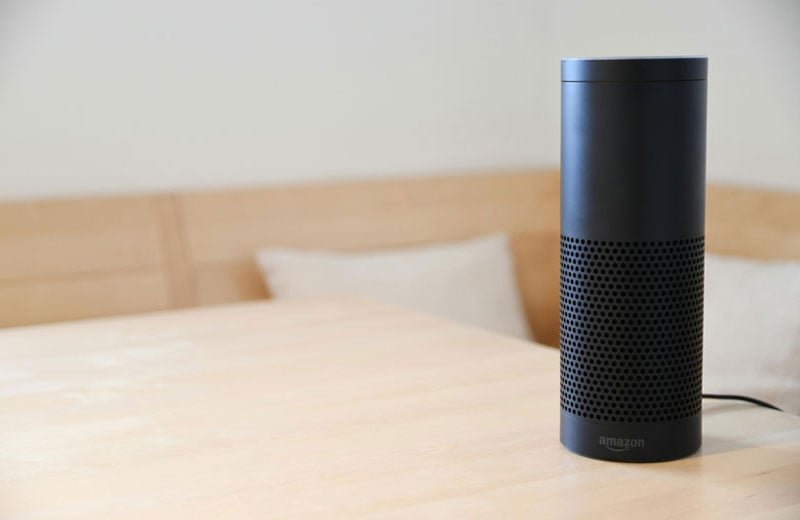As smart devices are becoming more popular and convenient in every facet of our lives, they also pose some serious security risks to be aware of. Hackers target these smart devices to access your personal information, spy on your activities, or cause damage to your home or workplace.
Often the dangers of smart home devices fall under the radar. Seventy-five percent of people feel some level of distrust about the use of their data; yet most people are willing to use smart technology. A hacker may have compromised your smart system without you even knowing it.
How can you tell if your smart device has been compromised? Here are 9 warning signs to look out for.
1. Unexpected Behavior
Unexpected behavior is the first sign someone has compromised your smart device. If your device starts acting erratically, it’s time to investigate. Erratic behavior can include smart lightbulbs flickering, thermostat settings changing on their own, or smart locks behaving unpredictably. Hackers often manipulate smart devices to create disturbances, so noticing these irregularities early can prevent further damage.
2. Unusual Network Traffic
Network monitoring is a fundamental aspect of cybersecurity. Have you observed a sudden surge in data usage or unusual patterns in network traffic? If so, this could indicate unauthorized access. Hackers may exploit your smart devices to launch attacks or steal sensitive information. Regularly check your router’s activity logs to stay vigilant against abnormal network behavior.
3. Strange Sounds or Voices
Smart speakers and voice-activated assistants have become commonplace but can pose serious security concerns. Hearing unfamiliar voices or strange sounds from these devices is a red flag. Hackers may use compromised devices to eavesdrop or communicate with household members. Ensure that your smart devices are only responding to authorized voices.
4. Modified Device Settings
Smart devices offer customizable settings to cater to individual preferences. If you notice unauthorized changes to these settings like alterations in camera angles, sensor sensitivity, or device preferences, there’s a high likelihood that a hacker has compromised your device. Regularly review and update your device settings to maintain control over your smart device ecosystem.
5. Unexplained Data Transfers
Smart devices often collect and send data to the cloud for analysis or storage. Keep an eye on your device’s data usage and examine any unexplained data transfers. Hackers may exploit vulnerabilities to extract sensitive information from your devices. Reviewing data usage patterns of your smart devices helps you to identify any suspicious activity.
How Do You Monitor Your Smart Devices?
6. Device Inaccessibility
Suddenly finding yourself locked out of your smart devices could be a sign of hacking, as bad actors may change passwords or enable two-factor authentication without your consent to take control of your accounts. This renders you unable to access or manage your devices. Always act promptly to regain control and secure your accounts if you suspect unauthorized access.
7. New or Unknown Devices on the Network
Regularly review the devices connected to your home network. Do you spot unfamiliar or unauthorized devices? If so, it’s a clear sign that someone may have breached your network. Hackers often do this to exploit vulnerabilities in smart devices or launch attacks. Secure your network with strong passwords and consider implementing network segmentation for added protection.
8. Frequent Software Glitches
Smart devices receive regular software updates that patch vulnerabilities and enhance security. Have you noticed frequent software glitches? Or has your device failed to update? Either could be a sign of interference by a malicious actor. Ensure that your smart devices are running the latest firmware that has the latest security patches and bug fixes installed.
9. Emails or Messages Confirming Changes You Didn't Make
Some smart devices send notifications or emails to confirm changes in settings, passwords, or device access. Did you receive such confirmations for actions you didn’t take? If so, this is a clear sign of unauthorized access. Take immediate action to secure your account like updating passwords and reviewing access permissions.
Need a Cybersecurity Assessment to Prevent an Unexpected Breach?
As our work and home lives become smarter, so must our approach to cybersecurity. The first step in safeguarding your digital domain is recognizing the signs that a hacker has compromised your device.
Remember, while smart devices can make your life easier and more comfortable, they also need careful maintenance and protection.
Need some smart device guidance? Contact Anderson Technologies today to schedule a device and network security audit for your organization or office!
Article used with permission from The Technology Press.


